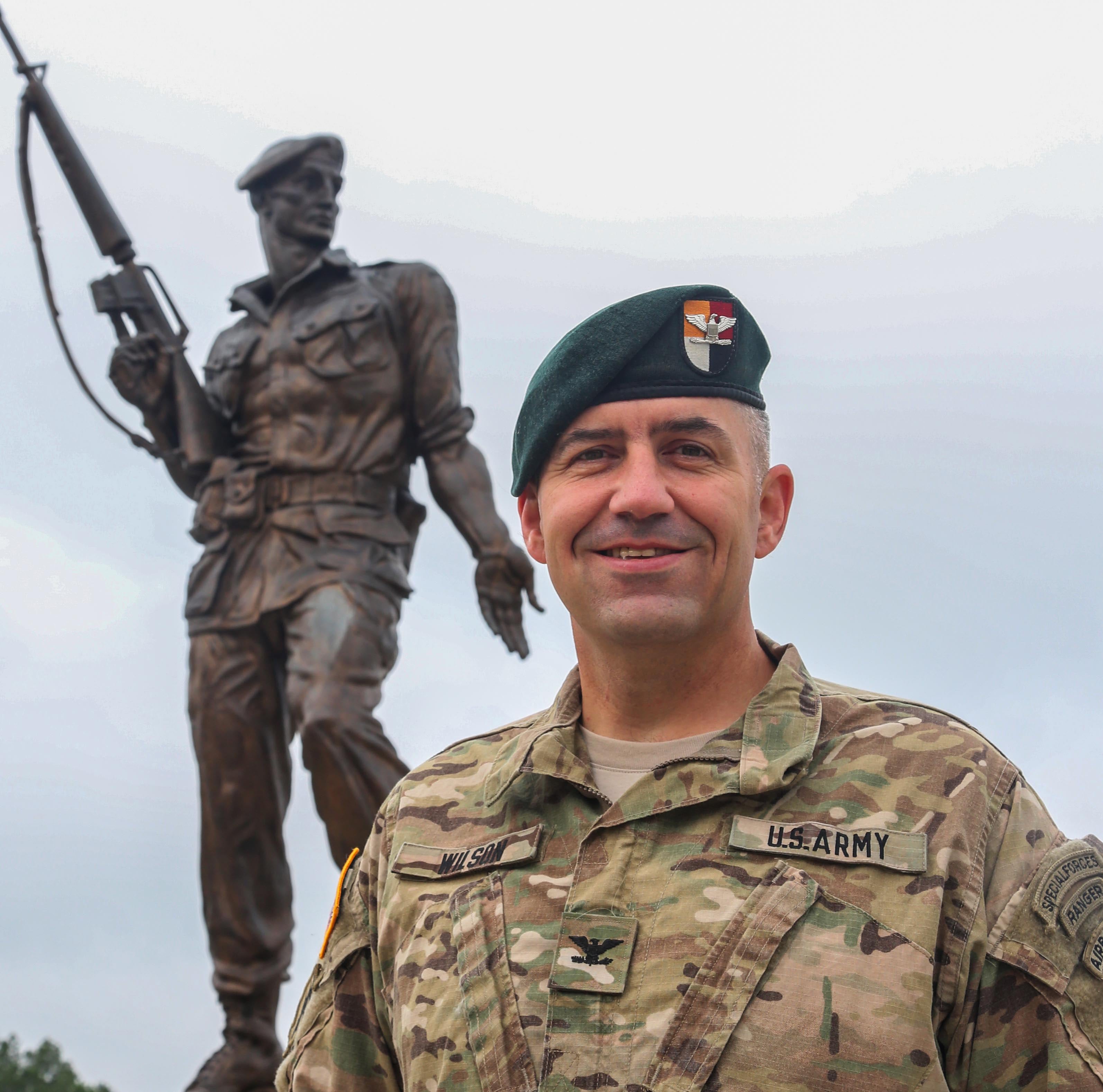The Army's 3rd Special Forces Group is going back to its roots.
This fall, the group from Fort Bragg, North Carolina, will begin shifting its area of operations to Africa. The group expects to complete its transition out of the Middle East and Central Asia by next summer as the wars in Iraq and Afghanistan wind down.
"It's a pretty exciting time here at 3rd Special Forces Group," said Col. Robert Wilson, the group commander. "We're beginning a gradual shift in our area of operations … [and] it's a pretty major change for the organization."
Wilson spoke to Army Times on Wednesday, which was the 25th anniversary of the group's reactivation.
The 3rd Special Forces Group was first activated in December 1963 with a Middle East and Africa focus; it was deactivated six years later, in December 1969.
The group was reactivated in 1990; its focus then was Africa and the Caribbean.
For the last 13 years, Special Forces soldiers from 3rd Group have deployed almost constantly to Afghanistan and, to a lesser extent, Iraq.
The transition back to Africa comes as demands and operations change; 3rd Group's transition is the result of an overarching look, led by U.S. Special Operations Command and the geographic combatant commands, at how special operations forces were being employed and allocated, Wilson said.
"They made an adjustment based on current operations, past history of deployment areas and an assessment based on where we're at with the wars in the Middle East," he said. "The outcome of that for us, for 3rd Special Forces Group, was the directive to shift our area of operations from Central Command to Africa Command."
As it transitions to Africa, 3rd Group will focus primarily on northern and western Africa, Wilson said. This could include deployments to countries such as Libya, Djibouti, Kenya, Mauritania and Mali.
Elements of the group will begin deploying to the continent this fall.

Col. Robert Wilson
Photo Credit: 3rd Special Forces Group (Airborne)
"Over the course of 2016, we will begin to take over increasing levels of responsibility within Africa," Wilson said. "By summer 2016, the objective is all of our forces working in the Central Command area of responsibility will be responsibly transitioned to Africa."
Until then, about a quarter of the group's Green Berets are still committed to Afghanistan and CENTCOM, Wilson said.
"Those missions will continue throughout 2016, but we'll gradually transition those with other U.S. special operations forces and by summer of next year be solely focused on Africa," he said. "We've been there for well over a decade. We've got a tremendous amount of experience there."
In the same vein, 3rd Group plans to leverage the experience of 10th Special Forces Group, which provides a significant number of special operations forces deployed to Africa, Wilson said.
"We will gradually replace 10th Group's mission on the continent," he said.
This will allow 10th Group to focus solely on Europe as part of the overarching realignment, Wilson said.
In Africa, the Special Forces soldiers in 3rd Group will get a chance to conduct some of their core missions.
"We're not at war in the African continent," Wilson said. "There's a host of problems, particularly in northern and western Africa, with violent extremist organizations and unrest."
Much of the soldiers' time will be spent working closely with African partners in "classic SF missions" like foreign internal defense and building partner capacity, he said.
"It's different, first and foremost, from what we did in Afghanistan, particularly during Operation Enduring Freedom," Wilson said. "That was a combat mission. We had people out there in direct combat, in harm's way."
In Africa, the mission will be "dramatically" different, where the soldiers' "success will be based solely on the success of our partners," Wilson said.
The soldiers in 3rd Group are training hard to prepare for their new mission, Wilson said.
"We're studying the region very closely," he said. "It's very geographically expansive and ethnically diverse. Understanding that is years in the making."
The group also is looking to revamp its entire language program, with French and Arabic as the two primary focus languages, and learning how to sustain its forces in very austere and remote locations, Wilson said.
The upcoming shift is a "tremendous opportunity" for 3rd Group, Wilson said.
"It's going to give us a tremendous amount of focus on a very complex part of the world, where we can apply … everything we learned the hard way in Afghanistan to a completely new problem set," he said.
The new mission also is going to challenge his soldiers, Wilson said.
"We're going into this mission very humble, recognizing we have a great deal of work to do to prepare for it and understand the complexity of it," he said.
At the same time, the group is committed to its ongoing missions in Afghanistan and CENTCOM, Wilson said.
"Our operational tempo is being raised substantially," he said. "Adapting to this new change while we're doing all these things is a tremendous challenge for the group."
Wilson said his soldiers are excited to be returning to Africa, "the place where we really made our mark."
"It's bittersweet to leave U.S. Central Command and the operations where we've served," he said. "We've paid a tremendous price there, but we're excited about the new mission."
Michelle Tan is the editor of Army Times and Air Force Times. She has covered the military for Military Times since 2005, and has embedded with U.S. troops in Iraq, Afghanistan, Kuwait, Haiti, Gabon and the Horn of Africa.




